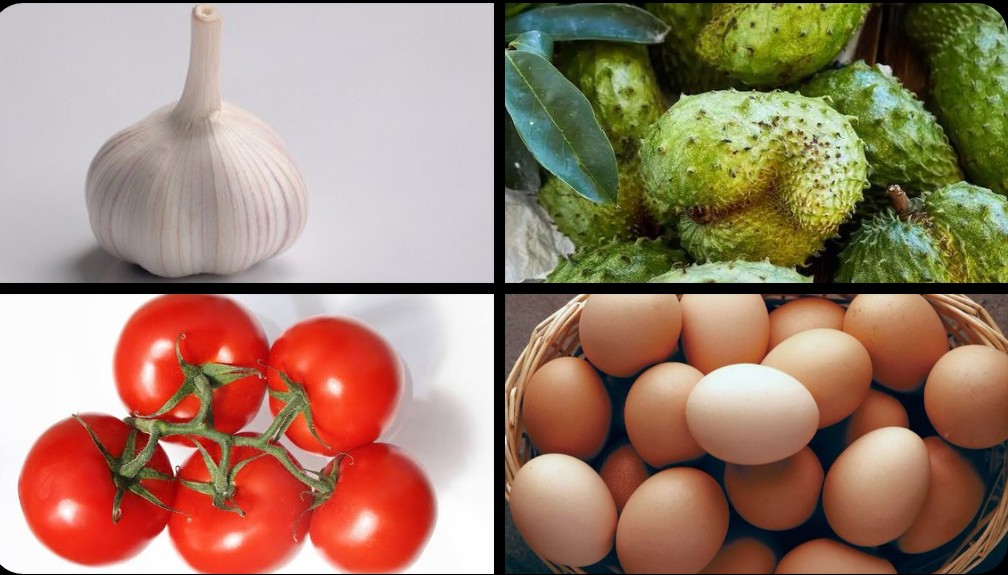For your TOOTHACHES, boil coconut husks for 20mins, allow it to cool, add a little salt to 30mls of the cooled coconut husk extract and hold it in your mouth especially the area of affected teeth for 7mins and spit it out, twice daily🍀…. The pains disappear after day 1 to day 4
Stop eating at night instead …. And brushing the teeth before bed is a must..A toothache is mild to severe pain in or around your teeth and jaws. It may indicate that you have a tooth or gum concern.

If you have a toothache, it’s important to figure out what’s at the root of your discomfort. From there, you can determine how to best relieve any pain, swelling, or other symptoms.
A regular salt water rinse and cold compress application can typically remedy minor irritation, but more serious toothaches may require a dentist’s intervention.
If your symptoms persist for more than a day or two, see your dentist. They can provide guidance on how to relieve your symptoms and prevent future pain.
You should also talk with your dentist before using any of the following remedies if you’re pregnant, breastfeeding, or have any medical condition that may be impacted by herbal ingredients…

1. Saltwater rinse
For many people, a saltwater rinse is an effective first-line treatment. Salt water is a natural disinfectant, and it can help loosen food particles and debris that may be stuck in between your teeth.
Treating a toothache with salt waterTrusted Source can also help reduce inflammation and heal any oral wounds.
To use this approach, mix 1/2 teaspoon (tsp) of salt into a glass of warm water and use it as a mouthwash.
2. Hydrogen peroxide rinse
A hydrogen peroxide rinse may also help to relieve pain and inflammation. In addition to killing bacteria, hydrogen peroxide can reduce plaque and heal bleeding gumsTrusted Source.
Make sure you properly dilute the hydrogen peroxide. To do this, mix 3-percent hydrogen peroxide with equal parts water, and use it as a mouthwash. Don’t swallow it.
3. Cold compress
You can use a cold compress to relieve any pain you’re experiencing, especially if any type of trauma has caused your toothache.
When you apply a cold compress, it causes the blood vessels in the area to constrict. This makes pain less severe. The cold can also reduce any swelling and inflammation.
To use this approach, hold a towel-wrapped bag of ice to the affected area for 20 minutes at a time. You can repeat this every few hours.
4. Peppermint tea bags
Peppermint tea bags can be used to numb pain and soothe sensitive gums.
Allow a used tea bag to cool down a little before applying it to the affected area. It should still be slightly warm.
You can also use this method to cool, rather than warm, the area. To do this, put a used tea bag in the freezer for a couple of minutes to chill it and then apply the bag to your tooth. Learn more about the health benefits of peppermint.
5. Garlic
For thousands of years, garlic has been recognized and used for its medicinal properties. It also has antibacterialTrusted Source properties. Not only can it kill harmful bacteriaTrusted Source that cause dental plaque, but it can also act as a pain reliever.
To use garlic on a toothache, crush a garlic clove to create a paste and apply it to the affected area. You may wish to add a tiny bit of salt. Alternatively, you can slowly chew a clove of fresh garlic.
6. Vanilla extract
Vanilla extract contains alcohol, which can help numb pain. Its proven antioxidantTrusted Source properties also make it an effective healer. Just be sure to use real vanilla rather than imitation vanilla.
To use this remedy, dab a small amount of vanilla extract onto your finger or a cotton ball. Apply it directly to the affected area a few times per day.
Other natural remedies
You can do the following remedies at home, but you may need to source the ingredients from your local health food store or online.
Your mouth, teeth, and gums are likely sensitive at this time, so it’s especially important to purchase these ingredients from a reputable manufacturer. This can reduce your risk of potential irritation.
7. Clove
Clove has been used to treat toothaches throughout history. The oil can effectively numb the pain and reduce inflammationTrusted Source. It contains eugenol, which is a natural antisepticTrusted Source.
To use this approach, dilute clove oil with a carrier oil, like sunflower or jojoba oil. Use a ratio of about 15 drops of clove oil to one ounce of carrier oil, according to the National Association of Holistic Aromatherapy.
Then, dab a small amount of the diluted oil onto a cotton ball and apply it to the affected area a few times a day.
You can also add a drop of clove oil to a small glass of water and make a mouthwash.
8. Guava leaves
Guava leaves have anti-inflammatory propertiesTrusted Source that can help heal wounds. They also have antimicrobialTrusted Source activity that can aid in oral care.
To use this remedy, chew on fresh guava leaves or add crushed guava leaves to boiling water to make a mouthwash.
9. Wheatgrass
Wheatgrass has countless healing properties, like anti-inflammatory and immune-boosting properties. It contains many nutrientsTrusted Source, including a high chlorophyll content, that help to fight bacteria.
You can drink wheatgrass or use it as a mouthwash.
10. Thyme
Thyme also has powerful antibacterial and antioxidant propertiesTrusted Source that can help to treat toothaches. It can even help fight bacteriaTrusted Source that contribute to tooth decay.
To use this, dilute thyme essential oil with a carrier oil, and then apply it to the affected area.
You can also add a drop of the oil to a small glass of water and make a mouthwash.
11. Toothache plant
The aptly named toothache plant is a flowering plant that grows in tropical and subtropical regions. Its active compound, spilanthol, has anti-inflammatory properties, according to a 2021 reviewTrusted Source. It also provides a numbing sensation when chewed.
Though this plant is generally considered safe, you shouldn’t use it if:
you’re allergic to plants in the daisy family
you drink alcohol
you use diuretics
you have prostate cancer
you’re pregnant










